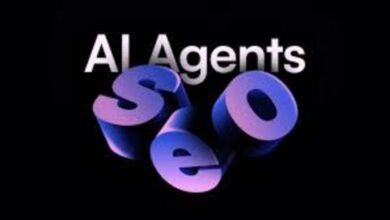Will Windows 10 OEM Meet My Business Needs?

Selecting the appropriate operating system comes with a huge risk of loss depending on the performance track, security options, and value that the OS brings. Windows 10 OEM or the newly written Windows 10 Operating System comes installed in newer devices.
Business Features in Windows 10 OEM
Windows 10 OEM boasts several features that target business needs from both the security and productivity angle.
- Security Tools: Windows Defender and built-in Firewall; these will afford the security necessary for your business to be kept safe from malware and unauthorized access.
- Management Tools: Windows Update and Windows Server Update Services enable organizations to centrally manage updates and deployments to multiple devices.
- Integration with Microsoft Services: This includes, but is not limited to, Office 365 and Azure for seamless collaboration, secure data storage, and access to a complete productivity toolset.
- Business Class Features: BitLocker encryption, Remote Desktop access to business systems from another location to support flexibility and mobility in your operations.
Benefits to Businesses
Windows 10 OEM offers some valuable business advantages, which make it quite worth considering for small to medium-sized businesses.
- Economical: OEM licenses are less expensive than Retail versions, thus offering a cost-effective method for corporations in reducing expenses but not economy class in terms of essential features.
- Simplified Management: It makes management easier since the updating of software and maintenance of devices with tools like Windows Update and WSUS are made rather easy, without too much interference in operations.
- Enhanced Security: With integrated security including Windows Defender, BitLocker, and firewall protection, critical business data stays more secure.
- Performance and Reliability: Since Windows 10 OEM is optimized regarding the hardware it’s installed on, companies enjoy stable performance and fewer compatibility problems.
- Support for Specialized Hardware: Companies using business-specific hardware or software will find that Windows 10 OEM works most correctly with them.
Limitations and Considerations
As much as Windows 10 OEM has benefits it can offer, it’s very critical to consider some of the limitations it presents:
- Hardware Restrictions: Since Windows 10 OEM is tied up with the original device itself, you cannot transfer the license to another computer. This may be a disadvantage for those companies that regularly upgrade or replace hardware.
- Support Limitations: OEM licenses normally depend on support provided by the device manufacturer and not by Microsoft. For any problem that occurs in the operating system, your support options depend on the policies of the manufacturers, which may limit support.
- Compatibility Problems and Upgrades: If your business requires upgrading hardware in the future or some kind of special software, it may not fall under the license provided by OEM. Thus, it may involve further investments to ensure compatibility.
- Limited Flexibility: Windows 10 OEM is connected with a particular hardware configuration, which means that when an upgrade or change in the system takes place in the future, there could be several complications regarding licensing or performance.
Alternative to Windows 10 OEM
Each User may have their business needs to be satisfied, so in case Windows 10 OEM does not suit those, here are some alternatives:
- Retail and Volume Licensing: It allows much flexibility with far better transfers of a license between devices and more options for getting support. For businesses that will upgrade hardware shortly or will have more than one machine, typically Retail and Volume licenses are better options.
- Other Operating Systems: In other cases, it may be that macOS or above all Linux offers alternative solutions with a different set of advantages, free and open-source software, or particular business-operating tools.
- Business-Specific Solutions: In certain other instances, some businesses may find the urge or the need to consider other solutions offering features specific to their operations, such as cloud-hosted operating systems or customized enterprise software platforms.
Conclusion
Windows 10 OEM is supposed to provide numerous business-friendly features: affordability, advanced security, and optimization of performance. Notably, limitations include hardware restrictions and options of support against which decisions must be weighed. For those businesses that need low cost and simplicity minus flexibility in licensing, Windows 10 OEM would be a good choice. However, if your business requires more flexibility or special support, consider Retail or Volume Licensing, as it may be the best for your needs. Always consider your organization’s needs over the long haul: Can you manage it effectively? Your security situation and any possible upgrades in the future.


